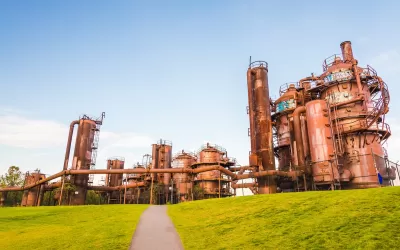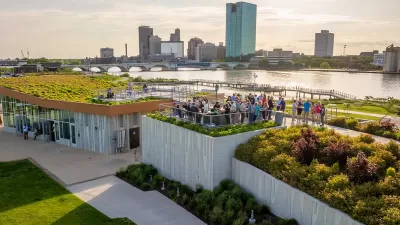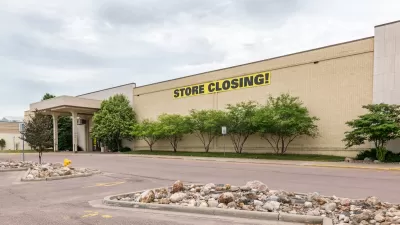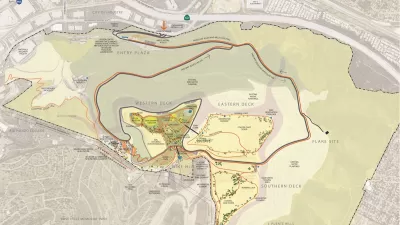Investing in soil health, urban parks, and nature-based solutions for brownfield remediation is essential for creating resilient cities, restoring ecosystems, and improving community well-being.

Urbanization and industrial growth have accelerated soil degradation, loss of biodiversity, and the proliferation of contaminated brownfields. Soil health is essential to ecosystems, serving roles in carbon sequestration, water filtration, food security, and flood control. Regenerative agricultural practices, reforestation, and composting are pivotal to restoring soil quality. Beyond agricultural benefits, healthy soil also contributes to human health, fostering stronger immune systems. By investing in soil regeneration, we pave the way for resilient and sustainable urban communities.
Urban parks act as critical green infrastructure, offering ecological, social, and economic benefits. They reduce urban heat, filter pollutants, improve air quality, and enhance biodiversity. Parks provide spaces for physical activity, mental health improvement, and community cohesion. Equitable green space strategies, such as converting brownfields into parks or employing vertical gardens, ensure that these benefits are accessible to diverse communities. By leveraging urban parks as “lungs” of cities, we can promote sustainable growth in urban environments.
Nature-based solutions, including bioremediation techniques, provide sustainable alternatives for brownfield remediation. Methods like mycoremediation and phytoremediation harness natural processes to remove contaminants while improving soil health and biodiversity. These strategies transform abandoned sites into community assets such as urban farms and green spaces. Collaboration across policymakers, private sectors, and local communities is essential to achieving these goals. By embracing the synergy between soil health, urban parks, and remediation efforts, cities can create vibrant ecosystems and healthier futures for their residents.
An upcoming webinar, “From Nature to Nurture: Ecosystem Strategies for Effective Site Clean-Up,” will explore more nature-based solutions for brownfield redevelopment.
FULL STORY: Soil Health, Urban Parks, and Nature-Based Solutions for Brownfields

Alabama: Trump Terminates Settlements for Black Communities Harmed By Raw Sewage
Trump deemed the landmark civil rights agreement “illegal DEI and environmental justice policy.”

Study: Maui’s Plan to Convert Vacation Rentals to Long-Term Housing Could Cause Nearly $1 Billion Economic Loss
The plan would reduce visitor accommodation by 25% resulting in 1,900 jobs lost.

Planetizen Federal Action Tracker
A weekly monitor of how Trump’s orders and actions are impacting planners and planning in America.

Wind Energy on the Rise Despite Federal Policy Reversal
The Trump administration is revoking federal support for renewable energy, but demand for new projects continues unabated.

Passengers Flock to Caltrain After Electrification
The new electric trains are running faster and more reliably, leading to strong ridership growth on the Bay Area rail system.

Texas Churches Rally Behind ‘Yes in God’s Back Yard’ Legislation
Religious leaders want the state to reduce zoning regulations to streamline leasing church-owned land to housing developers.
Urban Design for Planners 1: Software Tools
This six-course series explores essential urban design concepts using open source software and equips planners with the tools they need to participate fully in the urban design process.
Planning for Universal Design
Learn the tools for implementing Universal Design in planning regulations.
Caltrans
Smith Gee Studio
Institute for Housing and Urban Development Studies (IHS)
City of Grandview
Harvard GSD Executive Education
Toledo-Lucas County Plan Commissions
Salt Lake City
NYU Wagner Graduate School of Public Service





























